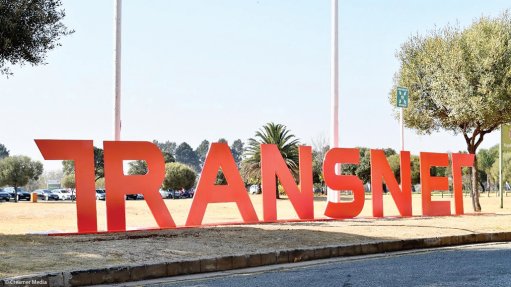Impairments, operating costs eat into Libstar’s earnings for 2022
JSE-listed consumer packaged goods giant Libstar has posted an 11.8% year-on-year decrease in normalised headline earnings per share (HEPS) for the year ended December 31.
The company says trading conditions were “extremely challenging” in the year, marked by ongoing global and local supply chain challenges, shipment delays, substantial cost inflation, constrained consumer spending and unprecedented levels of loadshedding.
The group notes that loadshedding contributed to no less than R39-million in operating costs for the year.
Added to Libstar’s loadshedding cost was a R13-million capital investment into generators in the reporting year, with a further R6.3-million spent on generators since January this year.
CEO Charl de Villiers says the management team was focused on cost management, adding generation capacity to ensure ongoing delivery of quality product and protecting own-branded and private brand market shares in the year under review.
“Our entrenched category-led and multi-channel operating model contributed to positive sales growth in all categories and we limited operating expense increases to 6.3% [year-on-year],” he explains.
Amid these challenges faced by the food producer sector, De Villiers says it is becoming increasingly important to assess Libstar’s portfolio, to ensure a robust group going forward.
To this end, Libstar found that six divisions drive 80% of the current and projected intrinsic value of the group. There are Lancewood, Rialto, Cape Herb & Spice, Ambassador Foods, Finlar Fine Foods and Amaro Foods.
The company has now refined its strategy to focus on delivering increasing returns on invested capital, through simplifying the portfolio and developing opportunities within these six divisions, while building the necessary scale in the remainder of the portfolio.
This follows on another recent repositioning of Libstar’s portfolio, which saw a shift in focus towards value-added food categories and doing away with the Household and Personal Care (HPC) division.
HPC continues to be held for sale as of December 31 and has been reclassified as a continuing operation in the financial results of the year under review, owing to the criteria to disclose the division as held for sale and discontinued operation not having been met.
The company reports that it recognised an impairment of R20-million in respect of HPC, in addition to a R98-million impairment owing to loss of production volumes from a fire that destroyed the Denny Mushrooms Shongweni facility on September 9 last year.
Another R89-million impairment was recognised from sustained margin pressure at Retailer Brands, which is owing to weak demand for higher-margin baking products.
The discontinuation of certain lemon juice and flammables product lines, as well as sustained margin pressure and operational challenges at Cecil Vinegar, resulted in a R70-million impairment of the business’ cash-generating unit.
Libstar recognised a total R277-million of impairments in the period under review, with these attributable to four divisions.
Equally, Libstar spent R277-million in net working capital to mitigate the impact of supply chain disruptions and maintain service levels to customers. Libstar also acquired a business called Cape Foods for R120-million in the reporting period.
Although Libstar’s gearing ratio increased 1.2x to 1.6x earnings before interest, taxes, depreciation and amortisation (Ebitda), mainly owing to the capital investments and the Cape Foods acquisition, the ratio remains within the group’s optimal range of 1x to 2x.
Meanwhile, in the reporting year, Libstar posted a group revenue increase of 10.7% year-on-year to R11.7-billion and a 4.1% decrease in normalised operating profit to R690-million, while the profit margin also lowered from 6.8% in 2021 to 5.9% in 2022.
Normalised HEPS of 65.3c in the year compare with normalised HEPS of 74c apiece in the prior year – marking a decline of 11.8%.
Normalised earnings per share (EPS) took a 68% knock, from 59.1c apiece in the prior year to 18.8c in the reporting year, for continuing operations.
Diluted EPS came to a loss of 0.6c apiece, against positive diluted EPS of 38c apiece in the prior year, for continuing operations.
Considering all operations, diluted EPS amounted to -0.9c apiece in the year under review, declining by 103% from 26.5c apiece in the prior year.
The board still declared a cash dividend of 22c an ordinary share, which is a reduction to the prior year’s dividend, in line with the reduction in normalised HEPS.
A 25c dividend was declared in 2021.
Cash generated from operating activities decreased by R304-million to R731-million, compared with more than R1-billion cash generated in the prior year, which Libstar attributes to an increase in group net working capital.
From a categorial perspective, the Perishable category grew its revenue and normalised Ebitda by 14% and 8.5%, respectively, albeit at a lower gross profit margin of 18.7%, compared with a gross profit margin of 19.1% in 2021.
The Groceries category grew its revenue by 8%, while normalised Ebitda dipped by 13.5% year-on-year, also at a lower gross profit margin of 23.4%, against a gross profit margin of 26.1% in the prior year.
The Snacks and Confectionary category reported a revenue increase of 4.7% in the year under review, but a normalised Ebitda decline of 5.4%, as well as a lower gross profit margin of 30.5%, compared with a gross profit margin of 35.8% in 2021.
The Baking and Baking Aids category grew its revenue by 7.6%, but normalised Ebitda fell by 14.1%. This category also posted a gross profit margin decrease to 25.2%, compared with a 26% gross profit margin in the prior year.
The HPC category grew its revenue by 5% and normalised Ebitda by 380% to R12.4-million.
De Villiers expects elevated inflation and interest rates will continue to put pressure on consumer spending in the new year.
Libstar will, therefore, continue offering value-for-money products across various price points and maintain the market shares of all its brands.
Additionally, the company will focus on accelerating growth in the six identified divisions, by placing an emphasis on export channel development and delivering returns on capital projects.
The group also remains committed to the repositioning of its portfolio towards value-added food categories in 2023, delivering value from the HPC division while it remains unsold and advancing other lower economic profit operations.
Comments
Press Office
Announcements
What's On
Subscribe to improve your user experience...
Option 1 (equivalent of R125 a month):
Receive a weekly copy of Creamer Media's Engineering News & Mining Weekly magazine
(print copy for those in South Africa and e-magazine for those outside of South Africa)
Receive daily email newsletters
Access to full search results
Access archive of magazine back copies
Access to Projects in Progress
Access to ONE Research Report of your choice in PDF format
Option 2 (equivalent of R375 a month):
All benefits from Option 1
PLUS
Access to Creamer Media's Research Channel Africa for ALL Research Reports, in PDF format, on various industrial and mining sectors
including Electricity; Water; Energy Transition; Hydrogen; Roads, Rail and Ports; Coal; Gold; Platinum; Battery Metals; etc.
Already a subscriber?
Forgotten your password?
Receive weekly copy of Creamer Media's Engineering News & Mining Weekly magazine (print copy for those in South Africa and e-magazine for those outside of South Africa)
➕
Recieve daily email newsletters
➕
Access to full search results
➕
Access archive of magazine back copies
➕
Access to Projects in Progress
➕
Access to ONE Research Report of your choice in PDF format
RESEARCH CHANNEL AFRICA
R4500 (equivalent of R375 a month)
SUBSCRIBEAll benefits from Option 1
➕
Access to Creamer Media's Research Channel Africa for ALL Research Reports on various industrial and mining sectors, in PDF format, including on:
Electricity
➕
Water
➕
Energy Transition
➕
Hydrogen
➕
Roads, Rail and Ports
➕
Coal
➕
Gold
➕
Platinum
➕
Battery Metals
➕
etc.
Receive all benefits from Option 1 or Option 2 delivered to numerous people at your company
➕
Multiple User names and Passwords for simultaneous log-ins
➕
Intranet integration access to all in your organisation




















